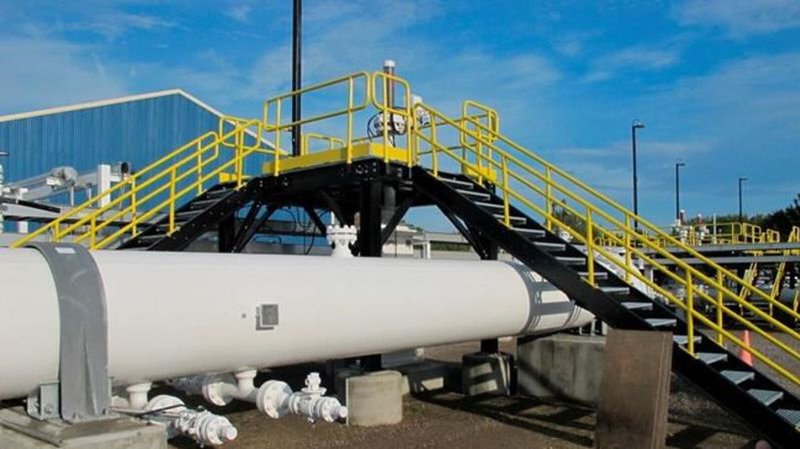
Canada ‘extremely concerned’ about fate of Line 5 pipeline in Wisconsin, embassy says
WASHINGTON — Canada’s embassy in Washington says it is “extremely concerned” about the fate of the Line 5 cross-border pipeline.
A court hearing Thursday in Wisconsin could determine whether the pipeline, owned and operated by Enbridge Inc., is allowed to continue operating.
“The energy security of both Canada and the United States would be directly impacted by a Line 5 closure,” the embassy said in a statement.
“At a time of heightened concern over energy security and supply, including during the energy transition, maintaining and protecting existing infrastructure should be a top priority.”


